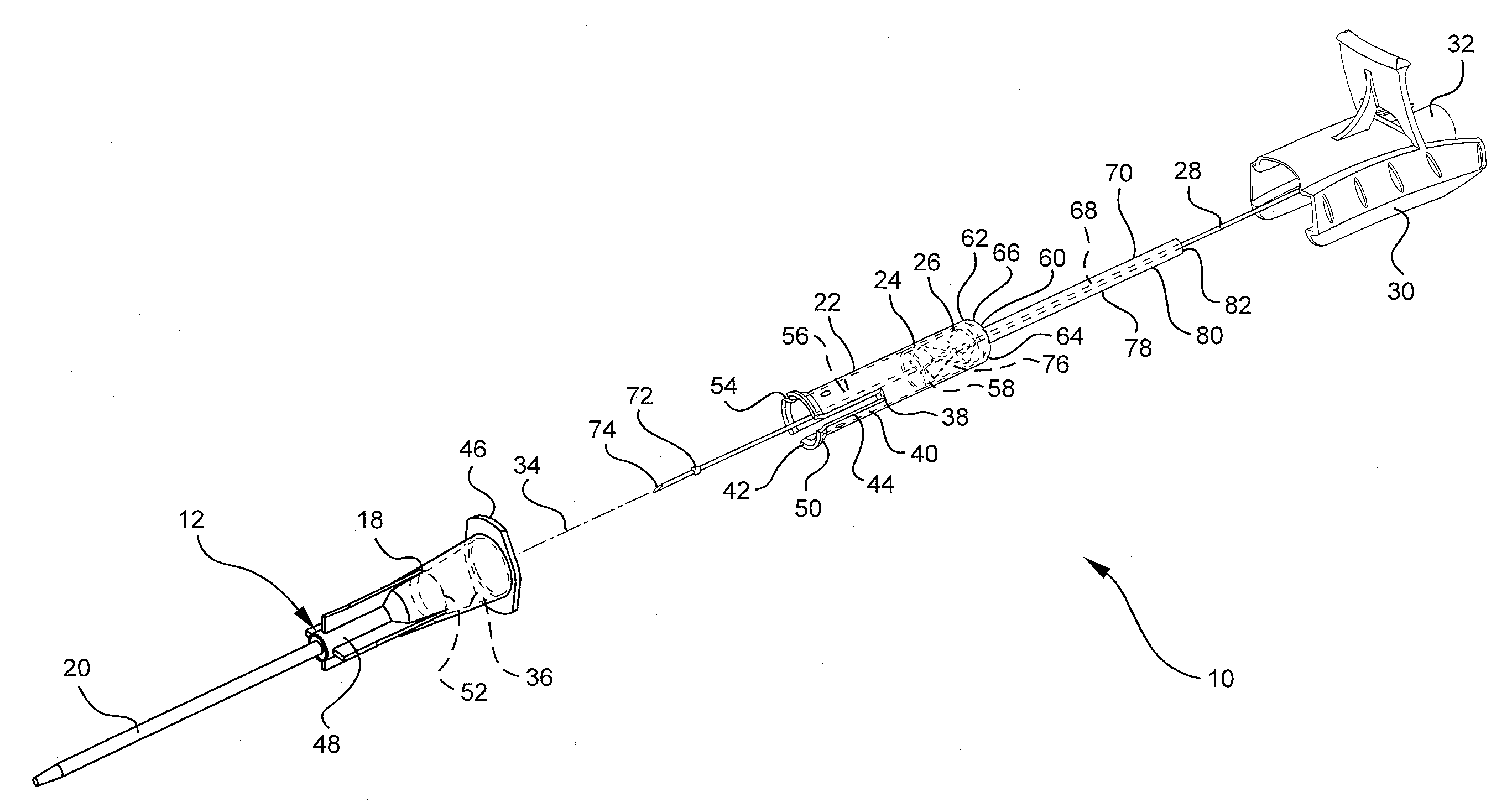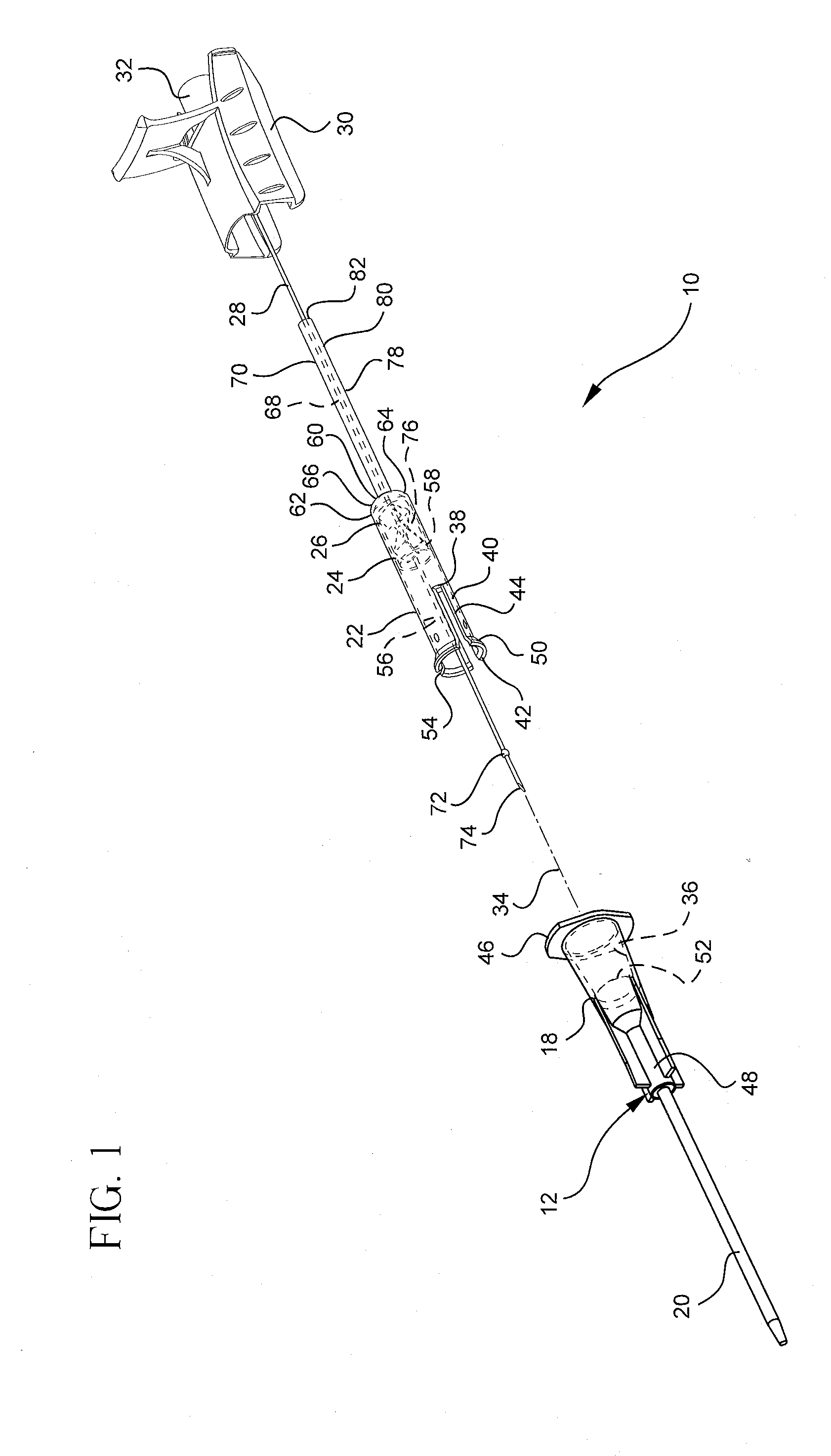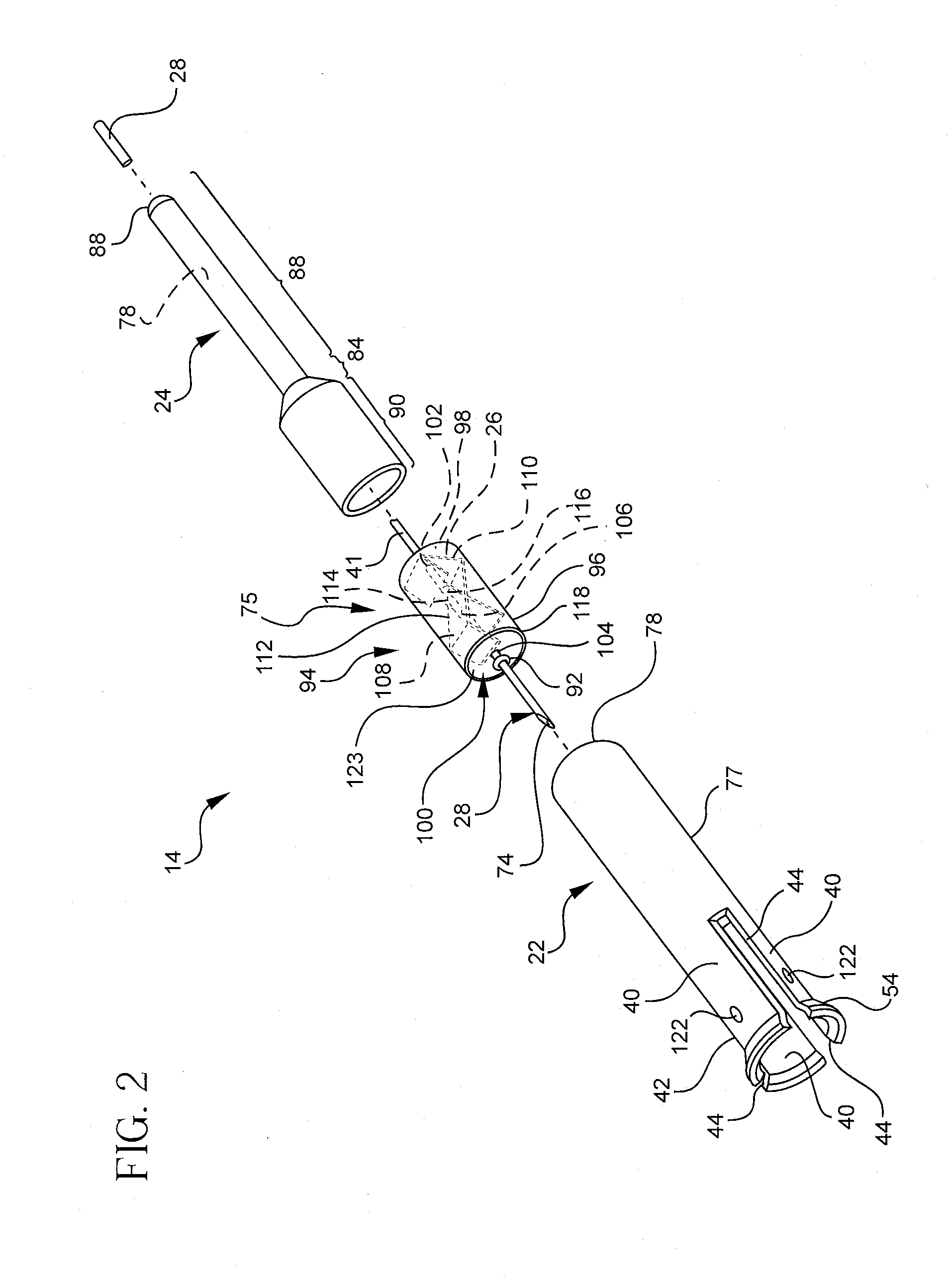Needle shield and interlock
a technology of interlocking and needles, applied in the direction of catheters, intravenous devices, needles infusion, etc., can solve the problems of blood dripping from the needle tip or coming into contact with other surfaces, presenting numerous potential hazards to the clinicians and others in the area, and reducing blood exposure.
- Summary
- Abstract
- Description
- Claims
- Application Information
AI Technical Summary
Benefits of technology
Problems solved by technology
Method used
Image
Examples
Embodiment Construction
[0027]The presently preferred embodiments of the present invention will be best understood by reference to the drawings, wherein like reference numbers indicate identical or functionally similar elements. It will be readily understood that the components of the present invention, as generally described and illustrated in the figures herein, could be arranged and designed in a wide variety of different configurations. Thus, the following more detailed description, as represented in the figures, is not intended to limit the scope of the invention as claimed, but is merely representative of presently preferred embodiments of the invention.
[0028]Referring to FIG. 1, a perspective view shows an example of a vascular access system 10. This example of a vascular access system 10 includes a catheter assembly 12, a needle shield assembly 14, and a needle assembly 16. The catheter assembly 12 includes a catheter adapter housing 18 and a catheter 20. The needle shield assembly 14 includes an o...
PUM
 Login to View More
Login to View More Abstract
Description
Claims
Application Information
 Login to View More
Login to View More - R&D
- Intellectual Property
- Life Sciences
- Materials
- Tech Scout
- Unparalleled Data Quality
- Higher Quality Content
- 60% Fewer Hallucinations
Browse by: Latest US Patents, China's latest patents, Technical Efficacy Thesaurus, Application Domain, Technology Topic, Popular Technical Reports.
© 2025 PatSnap. All rights reserved.Legal|Privacy policy|Modern Slavery Act Transparency Statement|Sitemap|About US| Contact US: help@patsnap.com



